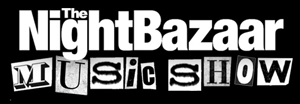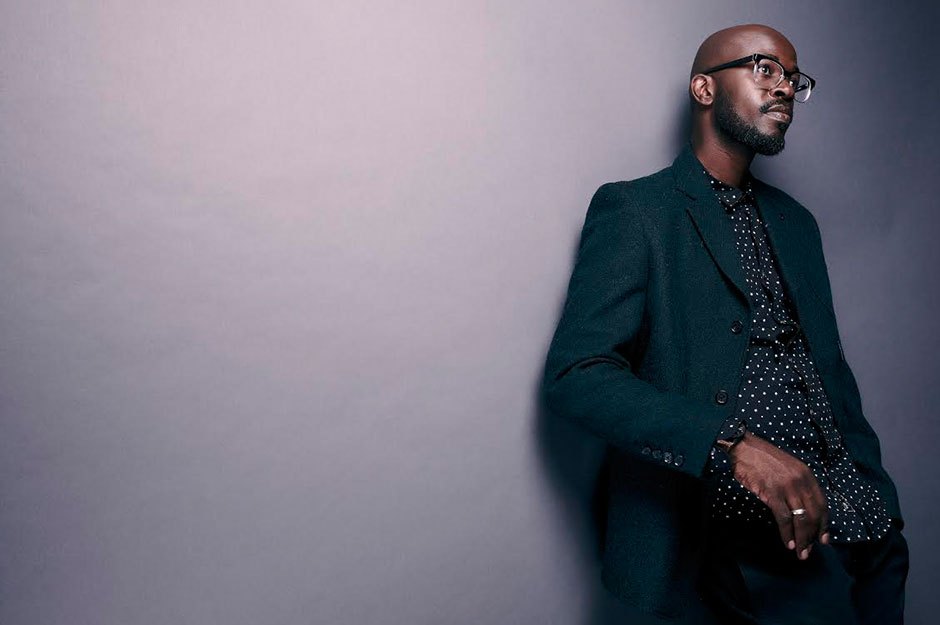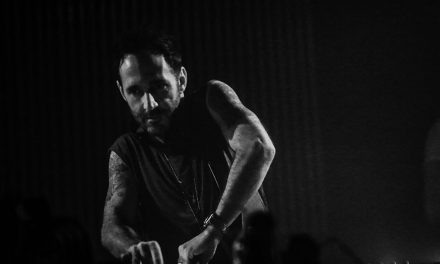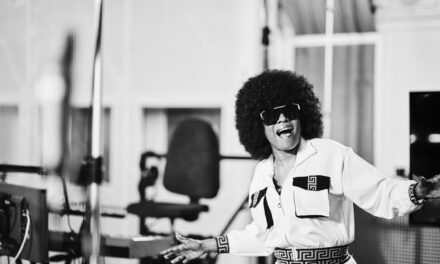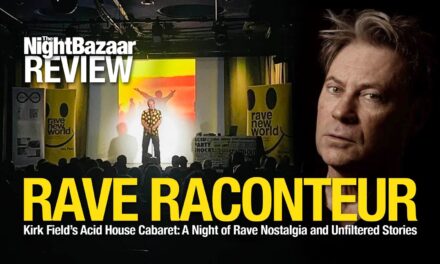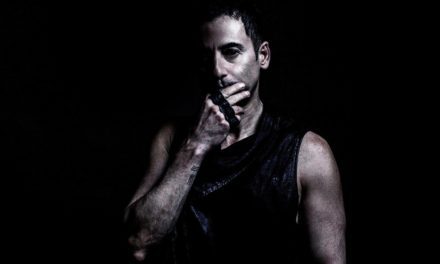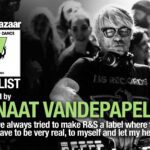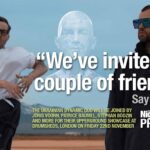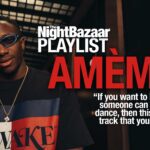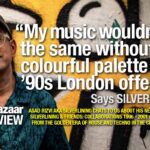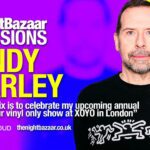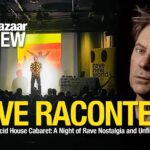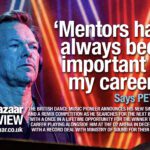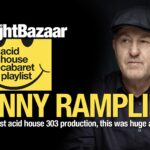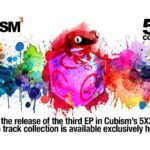AFTER courting the imagination of millions of people across the planet with his ‘Afropolitan’ house sound, the Soulistic Music architect Black Coffee has touched down in almost every continent as demand to hear him play internationally continues to soar.
His outstanding headline residency for Circoloco at Ibiza’s DC10 and Mixmag front cover in August last year received an overwhelming response and his We Dance Again video challenge has received 5000 entrants.
We spoke with international DJ and South African national hero, Black Coffee aka Nathi (pronounced: Natty) Maphumulo while he was on the road heading to Pretoria, near Johannesburg in South Africa for his 6th of 9 DJ gigs that weekend in this interview first published on March 10, 2016.
What makes you want to play 9 gigs in a weekend?
This is something that happens in South Africa. We play out a lot. People here love to party and house music is such a part of people’s lives now that it’s important to share what we do. I travel a lot so I don’t get to play for people here that often. I played 2 gigs in the same city on Friday and I have 2 gigs in Pretoria tonight. There are a lot of house music parties in South Africa, particularly in the townships, it’s the music of the people and the weekend starts on Thursday for a lot of them!
Which other South African house music DJs do you recommend?
There are so many producers, acts and DJs I like such as Da Capo, and Black Motion, with many others breaking through. DJs are stars here, even a 3 -year old DJ called Arch Jr. won South Africa’s Got Talent!
Can you tell us how you first got into electronic music and specifically house?
When I was 15 or 16 I got into collecting records. Before that DJs usually played tracks off cassette.
I used to go to the local vinyl store and bought the latest imported 12 inches. It was usually deeper, inspirational house tracks from U.S. and Europe on labels like Ibadan, Yoruba, Vega, MAW etc. We were always big consumers of international music in South Africa, as DJs didn’t make their own tracks here, in fact I was one of the first people to produce music.
South Africa isn’t the first place that springs to mind when thinking of Global dance music hotspots. Why do you think this has happened so big?
Following apartheid, for us international music was new, the music business was new and the artists that came before us took it to greater heights. The new generation learnt from the mistakes of the old – we had a reference point as we saw what worked best.
What was the scene like growing up in South Africa and what is it like today?
This style of music connected with people locally and there were always house music parties as well as some large international dance music events. Now things are on a much bigger scale. I recently played at Ultra South Africa, which because it has an international line up is a fantastic multi-racial event, something we all strive for.
Although there are many open-minded South African clubbers who attend dances, I play predominantly to black people. Some clubs are racially mixed and house music does foster a generous spirit amongst clubbers so it’s not uncommon, but a lot of people are from the ghetto.
What was it like growing up in South Africa under apartheid?
I was as born in Durban but grew up in Eastern Cape, Umtata, in a township. However it was an independent state not subject to apartheid, so we had black leaders, and we enjoyed a higher level of education. We were just as poor and I grew up in a ghetto with everyone trying to ‘make it’, so you had to think outside the box to achieve this. There is aspiration in some areas, while others live miserably, however, most people are willing to pioneer for change. At the end of the day we want the best for everyone, but it’s a struggle for balance.
Has house music spread to many other parts of Africa? Can you give us some examples of where else it is flourishing?
The vibe is big all over the southern half of Africa, and I travel up as far as Kenya, Angola, Ghana and I’m looking forward to playing in Nigeria for the first time, where it’s strong right now.
Your take on house music has been influenced by other forms of music that surrounded you. Can you describe how different styles and cultures of Africa have influenced African house?
We take our influence from a range of international artists, but Kenny Dope, Louie Vega, Ibadan, Yoruba (Osunlade), Africanism (DJ Gregory). However we do combine our own ideas and sounds in the house music we produce.
Obviously kwaito music had been traditionally popular here, a music style that combined overseas and local influences and maybe that set the scene, but it still has a very different vibe to house.
Hip-hop was popular for a while but the misogynist and violent lyrics don’t work for people today.
When slower tempos were popular DJs used to play house music 45s at 33rpm and there were even compilation albums of that stuff. DJs in the ghetto used to start slow with hip hop, then kwaito while building up the tempos to house, now people want faster music all night long and everything has streamlined into the house scene.
There have been more than 5000 video clips posted of people dancing to your track ‘We Dance Again’ including politicians, sports stars and celebrities, we read that President Obama is a house head, would it surprise you if he did it?
Not at all, although it would be a great honour. He has been a great catalyst for change. When we created ‘We Dance Again’ we were aware that it had something special. We felt the song evoked certain emotions and really excited people when it was played.
This led to the dance video with the legwork, which inspired people to get involved. A friend in the video challenged a dancer in Paris who then challenged me. It spread virally in the most amazing way. People from all over the world, UK, France, U.S. and other African countries have created their own interpretation of it. In a way I see it as the ‘people’s song’ and we are bringing the South African vibe to the world.
To view the latest entrants to the ‘We Dance Again’ video challenge click here.
What does Ibiza mean to you and what was it like playing at Ibiza’s temple of house music Circo loco at DC10?
Ibiza is an amazing place where the world goes to play and party. For a South African DJ like me, if you can make it in Ibiza you can make it anywhere! The music world meets there and you have that whole scene at your fingertips. The whole experience made me see dance music in a different way and gave me new enthusiasm to go forward. They have a really amazing team at Circo Loco who understand my vision and my goal is to make this world a better place. It’s all about love, one love.
Where else do you play internationally? What’s next for you?
I spend a lot of time on aeroplanes now. There have been great shows in so many places. France, in particular Paris, New York, London, Miami, Amsterdam, Germany, and Greece is like my second home!
Support for what I do is strong in the US, and last year I moved to New York for the summer. I will be spending this summer in Los Angeles, the time I have spent there has been quite special. I will also be playing Coachella this year. The whole thing is an amazing adventure which brings me so much joy.

